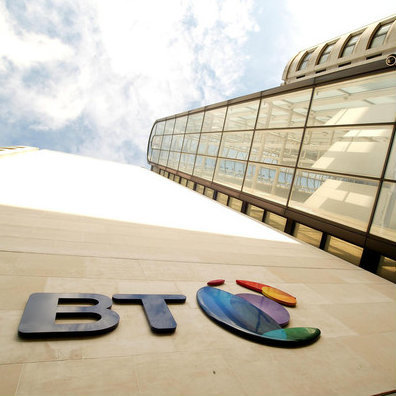
Also in today's EMEA regional roundup: EE goes with Ericsson for subscriber analytics; du catches 5G fever; EU measures digital progress; Sky opens innovation center for research into virtual reality and more.
BT Group plc (NYSE: BT; London: BTA) is considering the sale of its mobile masts to help fund its fixed broadband investments, according to a report in the Telegraph. The sale of about 7,000 masts, which BT inherited when it acquired mobile operator EE, could raise up to £1.5 billion (US$2 billion), according to the report. BT plans to build fiber to 3 million premises by 2020 and deploy Gfast technology to boost broadband speeds to another 10 million homes and businesses as part of its updated strategy, which also features preparation for a 5G launch, job cuts and corporate restructuring:
In other developments at BT's mobile operation, EE has chosen Ericsson AB (Nasdaq: ERIC) to help improve the customer experience. EE will use a system based on Ericsson Expert Analytics (EEA), a system that gleans subscriber "behavior insights" from various network elements and probes. The system will support EE's 2G, 3G, 4G, VoLTE and VoWiFi services.
And still with BT... The company's quasi-autonomous network access division, Openreach , is investing £400,000 (US$536,000) in a fiber training school in Livingston, Scotland. Around 1,700 trainees are expected to pass through the doors of the school during the 2018/19 period, with around 40 of them being hired to work directly on the rollout of fiber-to-the-premises (FTTP) in Edinburgh.
Emirates Integrated Telecommunications Co. (du) has climbed aboard the Middle East's next-generation tech ballyhoo bandwagon and says it will roll out a 5G network in UAE by the end of 2018, in readiness for the deployment of 3GPP-compliant 5G terminals in 2019. The operator recently demonstrated what it claims was the "first 5G site," at its headquarters in Dubai Media City, achieving download speeds of 1.5 Gbit/s. Like many others, du believes the advent of 5G will allow it to make hay in a range of still-developing areas, such as augmented reality, artificial intelligence and the Internet of Things. The operator is just one of several in the Middle East to have boasted of its 5G developments in recent days. (See Middle East Operators Battle for 5G Bragging Rights.)
The European Commission has published its 2018 Digital Economy and Society Index (DESI), a tool which sets out to monitor the performance of EU member states in terms of connectivity, online skills development and the digitization of businesses and digital public services. Denmark, Sweden, Finland and the Netherlands scored the highest ratings, while Romania, Greece and -- surprisingly perhaps -- Italy bring up the rear. The index found that connectivity of at least 100 Mbit/s is now available to 58% of EU households, though only 15% of homes are actually using "ultrafast" broadband. Alarmingly, considering the increasingly online way the world is heading, 43% of Europeans still do not have "basic digital skills."
Sky , the UK-based pay-TV giant, has announced plans to build an innovation center at its Osterley campus near London. The facility will house a team of engineers and software developers focused on developing the company's broadcast and streaming platforms, including more research into content innovations such as virtual reality. The 70,000 sq ft center will be Sky's third such technology hub -- similar set-ups in Leeds and Milan are already up and running.
Apple Inc. (Nasdaq: AAPL) has paid the first tranche of the €13 billion ($15.8 billion) of what the European Commission deemed are monies owed to the Irish government due to the tech giant's unfairly favorable tax treatment. As Reuters reports, Apple last week transferred €1.5 billion in an escrow set up by the Irish government specifically for the missing millions. Both Apple and the Irish government maintain that there was nothing unlawful about how Cupertino's finest was treated in tax terms. (See Eurobites: EC to Charge Apple With Illegal Tax Deals in Ireland.)
— Paul Rainford, Assistant Editor, Europe, Light Reading
Read more about:
EuropeAbout the Author(s)
You May Also Like











